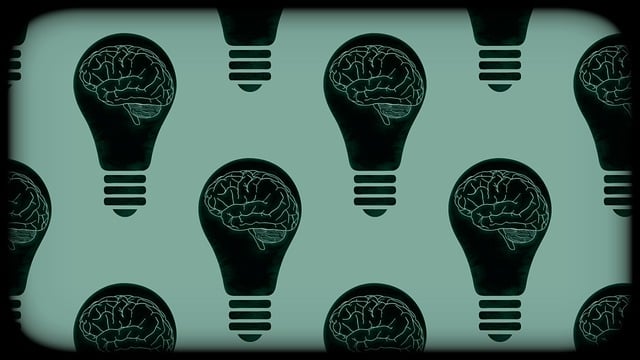Broomfield Biofeedback Therapy is a digital solution for mental wellness, offering real-time physiological insights through software and sensors during activities or meditation. This empowers individuals to manage stress, reflect on their mental state through journaling exercises, and cultivate positive thinking. By tracking metrics like heart rate and brain waves, users gain control over their mental wellness journey, reducing stress and improving emotional regulation. User-centric app design with customizable dashboards and adaptive algorithms provides personalized guidance for effective mindfulness meditation practices. Strategic promotion through social media, influencer partnerships, and SEO tactics ensures the app reaches those seeking crisis intervention and emotional regulation support.
In today’s digital landscape, mental wellness apps are transforming lives. This article explores the multifaceted world of digital solutions for mental health, with a focus on understanding common issues and innovative approaches like Broomfield Biofeedback Therapy. We delve into designing user-centric apps, effective launch strategies, and the impact these tools have on global mental health awareness. Discover how technology is revolutionizing therapy, offering hope and support to those in need.
- Understanding Mental Wellness and Its Digital Solutions
- The Role of Biofeedback in Therapy: A Focus on Broomfield Biofeedback Therapy
- Designing User-Centric Mental Wellness Apps
- Launching and Promoting Your Mental Health App Effectively
Understanding Mental Wellness and Its Digital Solutions

Mental wellness encompasses a person’s emotional, psychological, and social well-being, affecting their overall quality of life. It involves managing stress, cultivating positive thinking, and seeking support when needed. In today’s digital age, technology offers innovative solutions to address mental health concerns, providing accessible tools for individuals to take control of their mental wellness.
Broomfield Biofeedback Therapy is a prime example of how digital innovations can revolutionize mental wellness care. By utilizing specialized software and sensors, this therapy allows users to gain real-time insights into their physiological responses during various activities or meditation practices. This knowledge empowers individuals to make conscious adjustments, promoting self-awareness and stress reduction. Additionally, integrating Mental Wellness Journaling Exercise Guidance within these apps encourages users to reflect on their experiences, track progress, and identify patterns, fostering a deeper connection with their mental state.
The Role of Biofeedback in Therapy: A Focus on Broomfield Biofeedback Therapy

Biofeedback is a powerful tool within therapy that offers individuals greater control over their mental wellness journey. One specific approach, known as Broomfield Biofeedback Therapy, focuses on teaching users to regulate their physiological responses, thereby enhancing their self-care practices and mental health awareness. This therapy provides an effective method for stress reduction, enabling people to manage their symptoms and promote a sense of calm.
Through various techniques, such as monitoring heart rate, skin conductance, or brain waves, Broomfield Biofeedback Therapy empowers individuals to gain insight into their bodies’ reactions to different situations. By understanding these responses, users can learn to consciously modulate them, leading to improved emotional regulation and enhanced well-being. This practice has proven beneficial for those seeking alternative Stress Reduction Methods, as it promotes a sense of agency over one’s mental state and encourages the adoption of healthy Self-Care Practices.
Designing User-Centric Mental Wellness Apps

In designing user-centric mental wellness apps, it’s paramount to prioritize the individual user experience. This involves understanding their unique needs and preferences, especially in a space as personal as Broomfield Biofeedback Therapy. Incorporating features like customizable dashboards and adaptive algorithms allows for personalized guidance on Stress Management and Emotional Well-being Promotion Techniques. By leveraging data from user interactions, these apps can evolve with the individual, providing tailored recommendations that enhance Mindfulness Meditation practices over time.
User interface design should be intuitive and accessible, fostering an environment where users feel comfortable exploring tools to improve mental wellness. Incorporating user feedback loops ensures continuous improvement of app features, ensuring they remain relevant and effective. This iterative process not only enhances the overall user experience but also reinforces the app’s role as a reliable companion on the journey towards better mental health.
Launching and Promoting Your Mental Health App Effectively

When launching your mental wellness app, such as Broomfield Biofeedback Therapy, effective promotion is key to reaching and assisting those in need. Craft a marketing strategy that highlights the unique features and benefits of your app to stand out in a competitive market. Utilise social media platforms to spread awareness, targeting specific communities and demographics that may benefit from its services. Engage influencers and mental health advocates to share their positive experiences with your app, fostering trust and credibility among potential users.
Additionally, focus on SEO strategies to ensure your app appears in relevant searches. Incorporate keywords like ‘Crisis Intervention Guidance’ and ‘Emotional Regulation’ into your content to attract individuals actively seeking such tools. Engage in mental illness stigma reduction efforts by showcasing how your app promotes understanding and self-care, appealing to a broader audience who may be hesitant to seek help due to societal barriers.
Mental wellness app development is a burgeoning field that leverages technology to enhance access to digital solutions for mental health. By understanding the core aspects of mental wellness, integrating evidence-based practices like Broomfield Biofeedback Therapy, and focusing on user-centric design, developers can create apps that truly make a difference. Effective promotion strategies are also key to ensuring these tools reach those who need them most. With the right approach, mental wellness apps have the potential to revolutionize how we support and nurture our emotional well-being.










